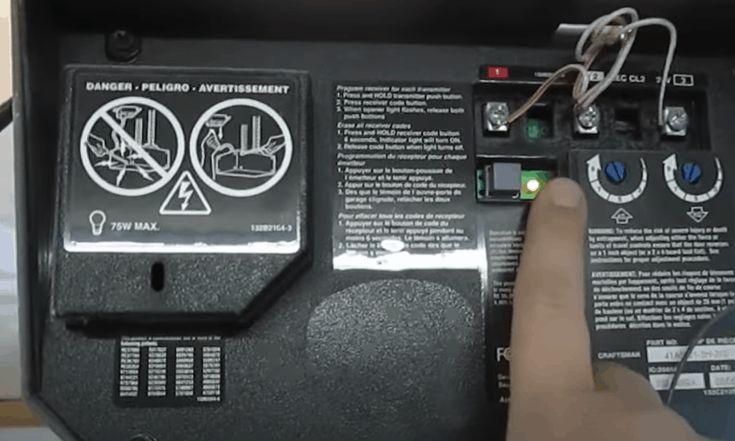A garage door opener is a convenient and essential component of any modern home, providing ease and security in accessing your garage. However, like any mechanical device, it may require adjustments over time to ensure optimal performance. In this comprehensive guide, we will delve into the intricacies of “How To Adjust A Garage Door Opener” effortlessly, empowering you to maintain and enhance its functionality.

Understanding the Basics: How To Adjust A Garage Door Opener
Before we delve into the adjustment process, it’s crucial to comprehend the basic components of a garage door opener. Typically, these systems consist of a motor, a track, and a set of springs that work in tandem to smoothly open and close the garage door. Familiarizing yourself with these elements lays the foundation for effective troubleshooting and adjustment.
Signs Your Garage Door Opener Needs Adjustment
Recognizing the signs that your garage door opener requires attention is the first step in ensuring its longevity. Some common indicators include unusual noises during operation, uneven movement of the door, or delays in response to remote commands. If you observe any of these signs, it’s time to embark on the adjustment process.
Read too: How to Open Garage Door Without Power From Outside Like a Pro? Unlock the Secrets
Safety First: Preparing for Adjustment
Before you begin adjusting your garage door opener, prioritize safety. Disconnect the power supply to the opener to prevent any accidental activation. Additionally, ensure that the door is in the closed position, providing a stable foundation for adjustments.
How To Adjust A Garage Door Opener: Step-by-Step Guide
1. Tension Adjustment of the Springs
One of the primary components influencing the smooth operation of a garage door is its springs. Begin by locating the adjustment screws on the springs and carefully tightening or loosening them as needed. Achieving the correct tension ensures balanced movement.
2. Track Alignment
Misaligned tracks can lead to jerky or uneven movement. Use a level to check the alignment of the horizontal and vertical tracks. Adjust as necessary, ensuring they are parallel and perpendicular to the ground.
3. Force Adjustment
Modern garage door openers come equipped with force adjustment settings. These settings control the amount of force applied when opening and closing the door. Adjust these settings according to the manufacturer’s guidelines to prevent unnecessary strain on the system.
4. Limit Switch Adjustment
The limit switches dictate the distance your garage door travels during opening and closing cycles. Improper settings can lead to issues such as the door not fully closing or opening. Adjust the limit switch settings to achieve the desired door travel distance.
Additional Tips for Optimal Performance
- Regular Lubrication: Keep moving parts well-lubricated to reduce friction and wear.
- Sensor Alignment: Ensure that the safety sensors on either side of the door are properly aligned to prevent accidents and ensure smooth operation.
Conclusion
In conclusion, understanding “How To Adjust A Garage Door Opener” is essential for maintaining the functionality and longevity of this vital home component. Regular inspections and adjustments can prevent major issues, saving you both time and money in the long run. By following the step-by-step guide provided here, you’ll be equipped to tackle any issues that may arise and enjoy the convenience of a smoothly operating garage door opener. Remember, safety and regular maintenance are key to a trouble-free experience.



Leave a Reply